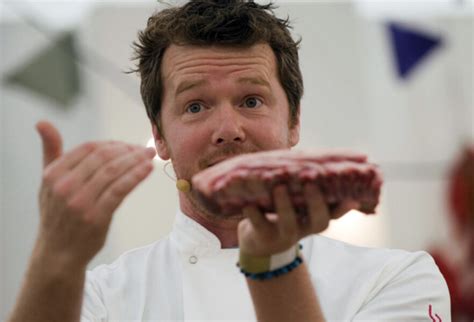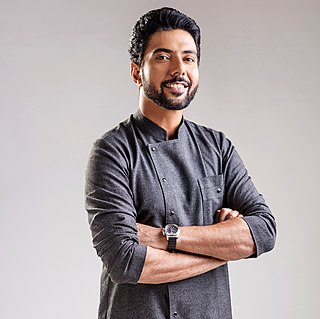A Quote by Arthur Potts Dawson
In Britain, the big supermarkets dominate our food chain. British supermarkets are some of the best in the world at controlling, manipulating and delivering cheap food.
Quote Topics
Related Quotes
It hit me very early on that something was terribly wrong, that I would see silos full of food and supermarkets full of food, and kids starving. ... In Fair Trade, we see ourselves as this infinitesimal part of the world economy. But somebody's got to come up with an alternative model that says children eating is No. 1.
We have food deserts in our cities. We know that the distance you live from a supplier of fresh produce is one of the best predictors of your health. And in the inner city, people don't have grocery stores. So we have to figure out a way of getting supermarkets and farmers markets into the inner cities.
We need to realize that these industrial methods of farming have gotten us used to cheap food. The corollary of cheap food is low wages. What we need to do in an era when the price of food is going up is pay better wages. A living wage is an absolutely integral part of a modern food system, because you can't expect people to eat properly and eat in a sustainable way if you pay them nothing. In fact, it's cheap food that subsidized the exploitation of American workers for a very long time, and that's always been an aim of cheap food.
When we spoke about workplaces in 1972 we mainly were referring to old-line manufacturing firms, on the one hand, and Main St. shops and restaurants, on the other. Both of those categories are now insignificant in terms of employment. Today, the economy is dominated by the rapidly growing Low-Cost Operators - national discount and mall chain stores, fast food franchises and supermarkets - which offer employees low salaries, few benefits and little training.




































